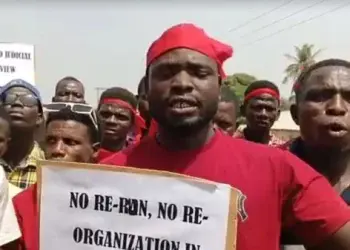Ghana’s evolving foreign relations have come under fresh scrutiny following a diplomatic spat between the Chinese Embassy in Accra and the European (EU) Parliament’s Committee on Foreign Affairs over the country’s deepening economic ties with Beijing.
The controversy erupted after Mr. David McAllister, Chair of the Committee on Foreign Affairs of the European Parliament, cautioned Ghana to tread carefully in its dealings with China, warning that Beijing’s zero-tariff trade arrangements, though seemingly generous, could “deepen trade imbalances” and expose developing economies to long-term dependency.
Speaking to students at the Ghana Institute of Management and Public Administration (GIMPA), Mr. McAllister contrasted China’s trade policy with that of the European Union (EU), arguing that the EU’s Economic Partnership Agreement (EPA) with Ghana was more “balanced and sustainable” compared to what he described as China’s “value-driven” and “strategically motivated” economic model.
His comments, however, drew a sharp and immediate response from the Chinese Embassy, which dismissed the remarks as “false, misleading, and absurd.”
In a statement issued in Accra on Friday, the Embassy accused the European official of distorting facts and undermining Ghana’s sovereign right to shape its own economic partnerships.
“Mr. McAllister’s statements are as absurd as they are ridiculous,” the Embassy’s spokesperson declared.
“Apparently, he hasn’t done his homework to learn that the zero-tariff treatment is China’s voluntary and unilateral initiative to open its market wider to Ghana and other developing countries.”
According to the Embassy, the zero-tariff policy is part of Beijing’s broader strategy to promote “mutual benefit and fair trade,” emphasising that the initiative is designed to boost Ghana’s export capacity and diversify its trade beyond traditional Western markets.
“This treatment will boost Ghana’s export expansion and trade balance. It is not coercion but cooperation,” the statement read.
China defends economic footprint in Ghana
The Embassy further argued that the growing presence of Chinese goods and investments in Ghana reflects market demand and consumer choice—not manipulation.
“The popularity of Chinese products in Ghana is simply because you can get a prime with just a dime,” the spokesperson quipped. “That is the free and independent choice of Ghanaian importers. Just ask the buzzing crowd of locals at China Malls.”
China, the statement added, has proven to be one of Ghana’s most consistent and reliable partners in industrialisation, agriculture, and infrastructure development.
Data from the Ghana Investment Promotion Centre (GIPC) was cited to support this claim, revealing that China registered 22 investment projects in Ghana in the first half of 2025 alone—cementing its position as the country’s largest investor.
“Which other partner dares to claim comparable contributions?” the Embassy challenged, pointing to China’s role in financing and constructing roads, bridges, factories, and hospitals across Ghana.
Beijing’s zero-tariff initiative
Beijing’s zero-tariff policy, announced earlier this year, extends duty-free access to 98% of taxable items imported from Ghana and other least-developed countries with which China maintains diplomatic relations.
Ghana is among the first African nations expected to benefit, with major exports such as cocoa, cashew nuts, textiles, and manufactured goods targeted for expansion into the Chinese market.
The Embassy reaffirmed that the initiative was endorsed at the highest political level, referencing former President John Dramani Mahama’s recent state visit to Beijing and meeting with President Xi Jinping.
“It was President Mahama himself who announced that Ghana would finalise the early-harvest agreement of the zero-tariff treatment during his visit to China just two weeks ago,” the Embassy stated.
A subtle rebuke to Europe
The Chinese Embassy also aimed at what it described as Europe’s “habit of lecturing” Africa instead of listening.
“Mr. McAllister may wish to listen more and lecture less,” the spokesperson said. “Promoting more European trade policies in favour of African development would be more constructive. Baseless defamation against other nations does not elevate one’s own stature.”
The statement underscored that China’s cooperation model with Ghana is grounded in equality and mutual respect—a foundation that has defined bilateral relations since 1960.
Ghana caught in the middle
Mr. McAllister had acknowledged Ghana’s sovereign right to choose its partners, but urged African nations to weigh the long-term implications of competing offers from global powers.
However, the current diplomatic exchange highlights Ghana’s increasingly delicate balancing act between the East and the West—between traditional Western allies and a rising Chinese presence that offers investment, infrastructure, and market access.
For Ghana, the duel between Brussels and Beijing underscores the country’s growing significance in global geopolitics, where every trade decision has implications far beyond its borders.
The Chinese Embassy ended its statement by reaffirming Beijing’s commitment to strengthening its partnership with Ghana in trade, investment, technology, and cultural exchange, declaring:
“China will continue to stand with Ghana in its pursuit of industrialisation, modernisation, and economic independence.”












